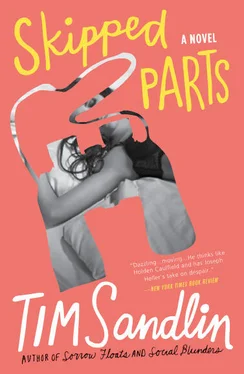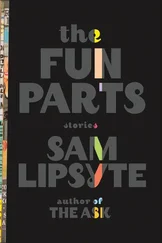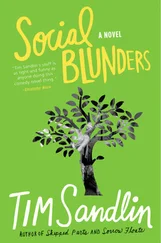Tim Sandlin - Skipped Parts
Здесь есть возможность читать онлайн «Tim Sandlin - Skipped Parts» весь текст электронной книги совершенно бесплатно (целиком полную версию без сокращений). В некоторых случаях можно слушать аудио, скачать через торрент в формате fb2 и присутствует краткое содержание. Жанр: Современная проза, на английском языке. Описание произведения, (предисловие) а так же отзывы посетителей доступны на портале библиотеки ЛибКат.
- Название:Skipped Parts
- Автор:
- Жанр:
- Год:неизвестен
- ISBN:нет данных
- Рейтинг книги:4.33 / 5. Голосов: 3
-
Избранное:Добавить в избранное
- Отзывы:
-
Ваша оценка:
- 80
- 1
- 2
- 3
- 4
- 5
Skipped Parts: краткое содержание, описание и аннотация
Предлагаем к чтению аннотацию, описание, краткое содержание или предисловие (зависит от того, что написал сам автор книги «Skipped Parts»). Если вы не нашли необходимую информацию о книге — напишите в комментариях, мы постараемся отыскать её.
Skipped Parts — читать онлайн бесплатно полную книгу (весь текст) целиком
Ниже представлен текст книги, разбитый по страницам. Система сохранения места последней прочитанной страницы, позволяет с удобством читать онлайн бесплатно книгу «Skipped Parts», без необходимости каждый раз заново искать на чём Вы остановились. Поставьте закладку, и сможете в любой момент перейти на страницу, на которой закончили чтение.
Интервал:
Закладка:
I hope nobody tells Moby Dick. I’d never been as jazzed by Huck and the boys as the young reader is supposed to be anyway. For one thing, the ending sucks eggs. We’re walking down a road a thousand miles from home and buddy Tom Sawyer pops up. “Hey, Huck.” “Hey, Tom.”
Get real, Mark.
Mr. Stebbins asked all these leading questions about Negro and white motivations and is the river thematic, and it didn’t take but about six minutes to figure out that the Nazi girl and I were the only ones who had actually read the book.
This teased-up and sprayed-down hairdo up front had read as far as chapter four—“The Hair-Ball Oracle”—and got hung up. “He says the hair-ball big as a baseball came out of the fourth stomach of an ox. I never heard of a hair-ball in a cow.”
“Well, Charlotte, superstition plays a big part in the book.”
“Daddy’s seen a gallstone big as a fist, but even a idiot could tell a hair-ball from a gallstone.”
Teddy the chewer with the weird belt spoke up. “Maybe it was a coyote. I’ve seen coyote hair-balls would gag an ox.” He was still chewing—right there in class. Had a Maxwell House can to spit into.
“An ox isn’t the same as a cow,” the Nazi girl said. “It’s bigger.”
Charlotte couldn’t be stopped. “Oxes eat grass so their turds are runny, same as a heifer.”
The kid who played third base yesterday held up his hand. His name was Kim Schmidt and that morning before school he’d shown me his one and only God-given talent. He could make a sound exactly, exactly mind you—when Kim showed me the trick he must have said “exactly” six times—exactly the sound a dog makes when it throws up.
“The German shepherd,” Kim had said, before his mouth went oval and his throat clicked three times, then he made the sound. I believed him.
“The cowdog,” he said. I couldn’t tell the difference; guess you’d have to know your barfing dogs.
Anyhow, Stebbins called on Kim who explained that a hair-ball would be in the first stomach of an ox, not the fourth, and that Jim the Nigger, or Mark Twain, had counted backward.
“Ain’t no hair-balls in no cows,” Charlotte insisted.
Stebbins took a shot at directing the discussion back to theme and character development. “Let’s leave hair-balls for the moment—”
“We haven’t decided about them yet,” Charlotte said.
“—and go on to Twain’s brilliant use of Negro dialect.” I’m not even sure Stebbins had read the book. That “brilliant use of Negro dialect” smacked of the Classic Comics introduction.
“Maurey,” Stebbins asked the Nazi girl. That was her name— Maurey. As in the record-setting base stealer for the Dodgers. “Maurey, what did you think of the way the character spoke?”
Maurey sniffed like the question was beneath her dignity. She was wearing a blue fuzzy thing and her hair came down more on one side than the other, the Jackie Kennedy look. “Nobody really talks that way.”
“Why do you think Twain wrote the dialogue in dialect if no one talks like that?”
“He wanted Huck to seem stupid and Jim even stupider. It was a way to put them down for being hicks.”
The class seemed to buy the rap. Who was I to publicly disagree with a Nazi?
Stebbins wasn’t sure. “So, Maurey, how do you know no one talks the way Twain wrote?”
“I’ve heard Southern accents on TV and they’re nothing like ‘I’se gwine ta hyar a gos, Massa Huck.’ What dope would talk that way?”
I knew better, but I jumped right in without raising my hand. “Huck is from Missouri which isn’t the South, and the book is set before the Civil War. Maybe people back then didn’t talk like they’re on TV.”
She reddened and turned in her seat to stare at me. I’ve seen disdain—nobody can touch Lydia at true disdain—but I’d never seen such intense disdain aimed right at me. “How do you know how people spoke before the Civil War? You’re not a day over eighty.”
Some of the kids sniggered and right off I was in the modern equivalent of school bully beating up the new kid at recess just to prove who’s toughest.
“I’m not even eighty,” I said back in as close to her tone as I could pull off. “I just figure Mark Twain knew more about how Negroes around him every day talked than you do.”
Stebbins opened his book, then shut it again. He cleared his throat. “We know Mark Twain was one of the great proponents of equal rights for all. We appreciate that here in the Equality State.”
I said, “Yeah, but he couldn’t stand a Jew.”
Stebbins looked surprised. “Are you sure?”
“Twain blamed every problem he ever had on Jews.”
A girl up front I hadn’t noticed before spoke up in a semi-Southern accent. “Are you Jewish?”
“No, I’m not Jewish.”
“How do you know Mark Twain hated Jews then?”
“I can read.”
A general murmur circulated the room. Natives were turning ugly. I might go through this and still get beat up at recess.
Maurey’s face had these two white spots on her forehead and her hair bounced when she talked. “How can you say that when you hate Negroes.”
“I don’t hate Negroes.”
Stebbins finally made it to his feet. “But you’re from the South.”
“So.”
“Everyone in the South hates Negroes.” That’s from the teacher. Can you believe it? For a moment I was struck dumb.
“You can’t deny it,” Maurey said.
I looked from face to face. They all looked the same. I had an inkling of what a black person sees in a white world. “Have you ever spoken to a Negro?” I asked her.
Maurey didn’t answer.
“How can you say anything about Negro speech if you’ve never spoken to one?” Mr. Stebbins started to say something, but I cut him right off. “Have you ever seen a Negro, Miss Smarty Pants?”
The smarty-pants deal took things too far, but this was junior high war. If I didn’t shut her down now, I’d spend the next six years in the coat closet.
“Of course I’ve seen Negroes,” she said.
“Where besides TV?”
Teddy spit in his can. “I seen ’em in Denver when we went down Christmas.”
“Did you speak to any?”
Teddy grinned and let juice run down his chin.
The girl up front came to the class rescue. “My daddy knows plenty niggers back home and we hate ’em all.”
“Does every Caucasian in the South hate Negroes?” Maurey asked her.
“I don’t know ’bout Caucasians, but ever’body in Birmingham does. Daddy moved here ’cause niggers got his job.”
Stebbins knew better than to try to control Maurey or me— we were smarter than him—so he tried to pull off some dignity on the little Dixie racist. “We do not call them niggers out West, Florence. They prefer to be known as Negroes.”
“Huck Finn calls the guy Nigger Jim.”
“That’s because Huck is an ignorant hick,” Maurey said. “Hicks talk that way.”
“They’ll always be niggers to me.”
“See.”
Stebbins shut his book with a pop. “Polite people say Negroes.”
I corrected the Marine washout one more time. “Actually, in North Carolina, the younger ones are calling themselves Afro-Americans.”
The whole class busted up at this. Don’t ask me why. What some people think of as funny has always been a mystery to me. Even Stebbins chuckled. “That’s a bit far out, don’t you think.”
I just shrugged. I snuck a look at Maurey and got the scowl to end all scowls. I crossed my eyes at her. She turned around to face the front.
About then the bell rang. Stebbins shuffled up his papers and books. He stared out at the class—not at me, mind you, just vaguely in the air above the third row—and said, “Sam Callahan, I’d like to see you here after sixth period.”
Читать дальшеИнтервал:
Закладка:
Похожие книги на «Skipped Parts»
Представляем Вашему вниманию похожие книги на «Skipped Parts» списком для выбора. Мы отобрали схожую по названию и смыслу литературу в надежде предоставить читателям больше вариантов отыскать новые, интересные, ещё непрочитанные произведения.
Обсуждение, отзывы о книге «Skipped Parts» и просто собственные мнения читателей. Оставьте ваши комментарии, напишите, что Вы думаете о произведении, его смысле или главных героях. Укажите что конкретно понравилось, а что нет, и почему Вы так считаете.












